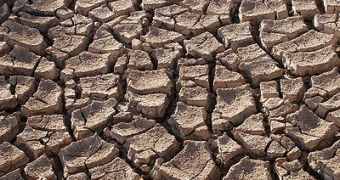New Zealand's National Institute of Water and Atmospheric Research (NIWA) announced last week that some areas of the country would most likely suffer the effects of a long-lasting drought, making this the second year in a row when people in the eastern part of the country are deprived of regular amounts of rainfall. A hot and arid summer triggered massive cracks in the soil, making harvesting crops a nearly-futile attempt on the part of the farmers.
The principle of NIWA, James Renwick, said on Friday that "It's possible a drought could develop in eastern parts of the country," whereas the other regions would most likely benefit from normal temperatures and precipitations. The key farming regions of New Zealand would also be affected by more heat, but the Institute also said that there would also be more rainfall, larger quantities than the regular amounts.
The La Nina weather pattern severely affected key dairy manufacturing regions of the country in the last half of 2007, with the drought extending to the first half of 2008 as well. Hydro lake catchment operations also suffered the effects of the warming, as production decreased significantly when the waters evaporated and receded. Government statistics say that the long-lasting drying of the earth and waters took NZ$1.2 billion ($663 million), and that the expenses made to offset these damages have not yet seized.
Less current in the national power grid, due to less water, also meant larger fees the population had to pay for electricity, which drove overall prices up, and the national satisfaction levels down. This type of catchments make up for some two thirds of the country's electricity production, so, if the situation persists, the crisis could deepen, and New Zealand would have to import its electricity from elsewhere.
The government will probably have to step in and offer compensations to farmers for their losses, while at the same time covering the country's food necessities from external sources. This could put a lot of pressure on it, and could drive the economy even deeper in recession.

 14 DAY TRIAL //
14 DAY TRIAL //